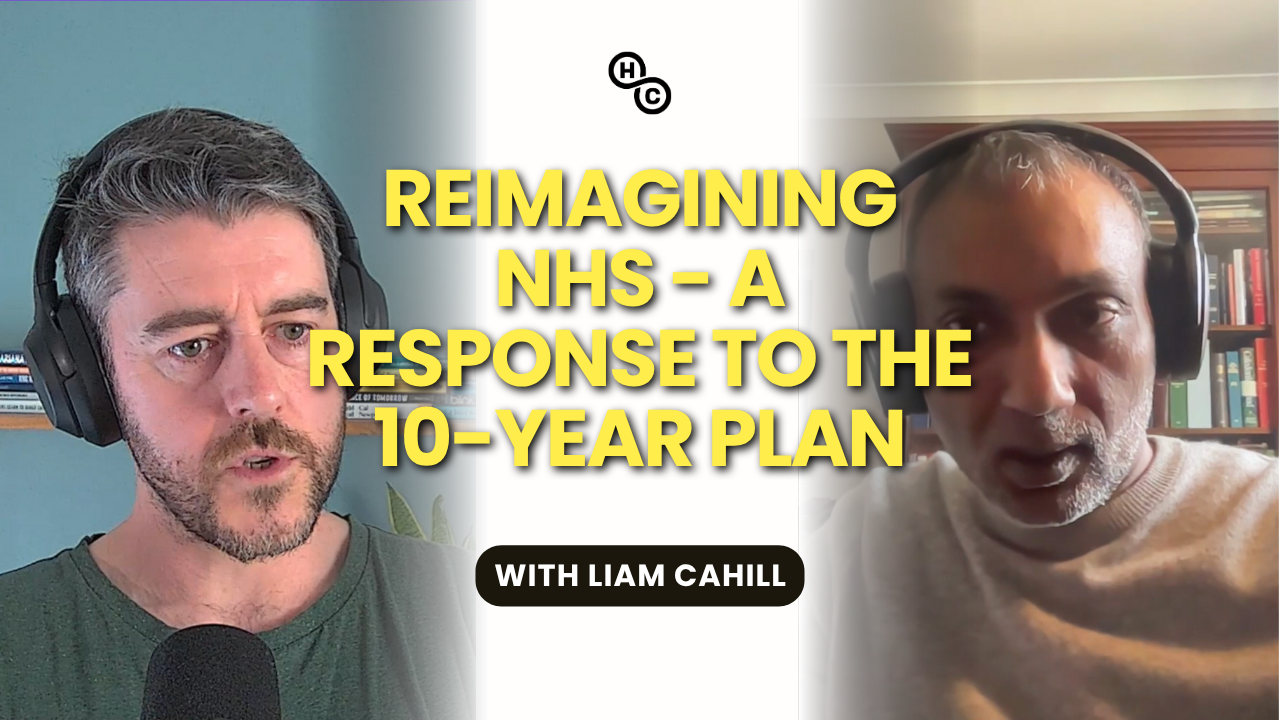Listen to the episode
When you spend time working across complex systems like the NHS and the military, you start to see the same patterns play out—patterns that determine whether organisations evolve or decay.
Over the past five years, I’ve mentored senior leaders across the Ministry of Defence and taught innovation within the system. But my deepest learning has come from the NHS — the most human, yet paradoxically bureaucratic system we have. I sometimes joke that the NHS is like if Isaac Newton and the creator of the Italian feudal city-state had a child. It’s hierarchical, powerful, brilliant — and utterly tangled.
Both defence and health have one thing in common: bureaucracy is the enemy of innovation. And yet, we’re addicted to it.
The Additive Mindset: How We Built Our Own Technical Debt
The NHS doesn’t evolve; it accumulates. Every time there’s a new challenge, we add another system, another process, another platform — stacking layers until the weight of it all crushes progress.
We talk about “digital transformation,” but in truth, most of what’s happened is digitisation of paperwork. We’ve turned forms into screens and called it innovation.
Our national systems are full of “additive thinking.” We’ve bolted new technologies on top of legacy frameworks that were never designed to carry them. It’s like strapping a jet engine to a horse and cart — technically impressive, but fundamentally wrong.
Meanwhile, our most powerful system suppliers have behaved like gatekeepers rather than enablers, maintaining control and resisting true interoperability. In an age of AI, data, and open integration, that’s not just disappointing — it’s dangerous.
The Data Problem: Taking Back Control
If I were given the power to fix one thing, it would be this: we need to take the data back.
Right now, system suppliers act as data controllers — holding our information hostage, dictating what’s possible. That has to change.
By 2030, the NHS should have a national, API-enabled data platform — a “held data bank” that allows authorised systems to plug in and access standardised data securely and instantly. Trusts could grant permissions in 24 hours, giving new entrants a fair chance to innovate.
This isn’t a fantasy. Technically, it’s achievable. Politically, it’s about courage. The government has nationalised railways before; they can reclaim our health data too. The question is: do we have the leadership to say to incumbent suppliers — “Fix it or get out.”
The Real Enemy: Bureaucracy
When we talk about inefficiency in the NHS, we often point at technology, but the deeper issue is bureaucratic logic.
Take compliance. Regulation and governance are essential, but they’ve become overwhelming. We’ve built an entire administrative machine to serve itself — not the people.
CQC and other regulators have created an impossible problem that consumes precious time, energy, and morale. In a world deluged by irrelevant information, clarity is power. But our systems generate noise — not insight.
AI could play a role here. If we can’t yet fix bureaucracy, we can at least use intelligent automation to shoulder the burden. But long-term, we must be brave enough to redesign the system, not just automate its dysfunction.
How Far Behind Are We, Really?
People often ask how far behind the UK is compared to other countries. The answer is complicated.
We’re not behind on talent or ideas — we’re behind on belief.
We’re still waiting for permission to change.
The NHS is massive, unique, and full of contradictions. But its very size is also its strength. Globally, innovators still want to work here because the challenge is Everest-sized.
And that’s the thing about Everest — it’s deadly, but it’s also irresistible.
Radical Reform: Burn Bureaucracy, Build Democracy
If we want a truly modern NHS, we have to start again — not with structures, but with belief systems.
We need to burn away the bureaucracy and replace it with democratic systems that don’t serve ministers or hierarchies, but serve people — staff, patients, and communities.
We should build a centre that serves the collective will of local organisations, not political cycles.
We should invite people across the system to co-create solutions, not just implement orders.
And we should remember that the NHS was never meant to be a top-down empire — it was a social contract.
A Network, Not a Paternal System
The NHS can no longer be a paternal institution that tries to solve every problem for us.
It must become a network of communities, where power, responsibility, and innovation are distributed.
Doctors and hospitals are not the only agents of prevention. People are. Streets, neighbourhoods, and families are where health begins. The future isn’t in more command and control; it’s in rebel alliances — empowered groups solving problems from the ground up.
The Bottom Line
Technology won’t save the NHS. People will — when we stop treating innovation as an add-on and start treating it as a mindset.
We don’t need more systems.
We need courage, clarity, and collaboration.
The NHS doesn’t need a hero leader. It needs a democratic movement.
“In a world deluged by irrelevant information, clarity is power.” – Yuval Noah Harari
It’s time we stopped drowning in data and bureaucracy — and started swimming toward something better.




.png)
.png)







